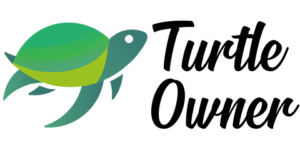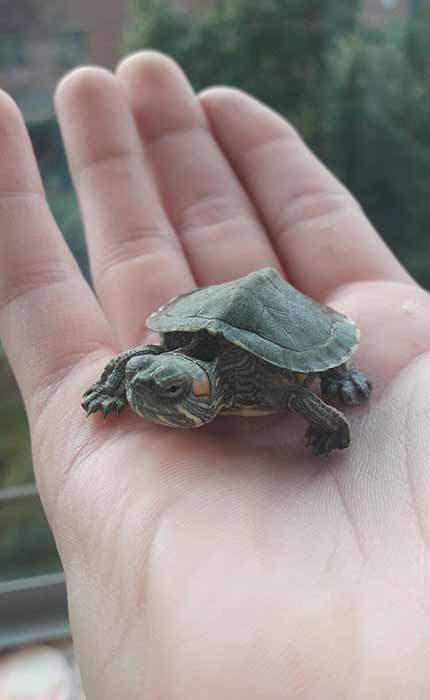One of the first things that you should know about a greek tortoise before getting one as a pet is how long it lives. As we all know, getting a pet is a long time commitment and sometimes that long time can be a little longer than we expected. Greek tortoises live a very long time compared to other animals, so let’s see exactly how long they live.
How long do greek tortoises live? Greek tortoises usually live 30 to 50 years, but there are cases when a greek tortoise can end up living more than 100 years.
As you can see the amount of time a greek tortoise will live is not very well defined. This is not because there weren’t enough studies made or anything like that. But in general, the lifespan of a tortoise is greatly influenced by some factors. Those factors can determine if a tortoise will only live 30 years, or if it will reach 100. Now let’s take a closer look at some of the most important factors and see how they influence the lifespan of a greek tortoise.
How the Environment Influences How Long a Greek Tortoise Lives
The environment of a tortoise is the area where it lives, and everything that lives in that area, not just the greek tortoise. Since the environments of wild greek tortoises and pet greek tortoises are so different I am going to split this part into two sections, one about the wild tortoises, and one about the pet tortoises.
Wild Greek Tortoises
In general wild tortoises have to deal with a lot of things that pet tortoises don’t have to worry about. And the most dangerous thing that they can encounter in the wild is a predator.
Predators
Any animal that wants to catch a tortoise and eat it, or do anything harmful to it, can be considered a predator. And since most animals in the wild rely on hunting other animals and eating them, you can imagine that a relatively defenseless tortoise has a lot of predators.
Here are a few of the most well-known tortoise predators:
- Raccoons
- Opossums
- Skunks
- Snakes
- Eagles
- Crows
- Dogs
- Cats
If you want to see a longer list you can check out my article: What Are the Predators of Turtles ?, in this article, I talk a lot more about tortoise predators in general, and I also provide a longer list with details.
Tortoises are not completely defenseless against predators, if that were the case there wouldn’t be any tortoises left right now. But they are definitely not the favorite winner of most encounters.
A predator can end the life of a tortoise in a few minutes, and the most vulnerable tortoises are the young inexperienced ones that don’t know how to properly hide or defend themselves. This is one of the main reasons why the average age is much lower than the maximum age they can biologically reach. When most predators see a young tortoise they will attack it knowing that it will be easy prey.
Out of all the factors that influence how long a wild greek tortoise can live, the predators are probably the biggest factor. But there are some things out there that can be a lot scarier.
Random Factors
By random factors, I’m referring to things that don’t usually happen, but when they do they can drastically affect all tortoises that live in an area, and those factors are usually out of the control of tortoises.
Here you can include most of the natural catastrophes, tornados, wildfires, floods, prolonged winters, etc.
The worst thing about those things is that they don’t only influence a tortoise directly, they influence all tortoises that live in an area. And this can happen in multiple ways. Let’s take for example a tornado. A tortoise can be caught in a tornado, and it will be directly affected. Or the entire vegetation of the area is destroyed and the tortoise is indirectly affected.
There are other things that can be added to the list of random factors that influence the lifespan of a greek tortoise. For example, some people can decide to camp in that area and throw some litter on the ground and the tortoise can find it and eat it. If what it ate was toxic you can be sure that its lifespan will be drastically reduced after that.
I can continue to add a lot of things to this random factors list, but at that point, the article won’t ever stop. So I am going to stop with the examples here, assuming that you got the idea.
Now let’s talk a little about the environment of a pet greek tortoise.
Pet Greek Tortoises
Pet greek tortoises don’t have to deal with any of the troubles that their wild counterparts have. But instead, their lifespan is drastically influenced but what you do, and what you provide for them.
The Tank / Enclosure / Habitat
The first thing that people provide for their tortoise is a place where it can live, and that is usually a tank or an outdoor enclosure. One of the most important aspects of the new habitat is its size.
But after you make sure that your tortoise has a proper place to live in, you will have to maintain it.
Temperature. Even if tortoises don’t live in water like most turtles, they still need a proper humidity level. Without enough humidity, they will end up getting infections or diseases that will affect their health and lifespan. Humidity is not hard to maintain, it usually all comes down to the substrate. But that is a completely different subject. If you want to read more about tortoise substrates you should check out the Care Guides section.
Cleanliness. Greek tortoises are pretty resistant when to comes to germs and bacteria, after all their natural wild habitats are not the cleanest out there. But even they have a limit. If a tortoise spends too much time in a dirty environment their health will start to suffer and this will drastically reflect in the amount of time that they will live. They don’t require a spotless environment every day, but a minimum of cleanliness should be maintained.
The Basking Area
Another essential thing that you have to provide for your tortoise to maintain good health, and live a long life, is a basking area.
When tortoises bask they get rid of the harmful bacteria that live on their shell, and they also get the necessary amounts of UVB light that help them maintain a healthy shell and bone growth. And they also regulate their body temperature, since tortoises are cold-blooded reptiles, they don’t produce their own body heat and they rely on the surrounding heat to regulate their body temperature.
If you want to know how to properly set up a basking area I would strongly suggest you read this guide: Guide for Lighting and Heating a Turtle Tank and Basking Area, in this guide you will find all the information you will ever need about basking areas, and tortoise tanks.
Now let’s move to the next major part of this guide the diet.
How the Diet Influences How Long a Tortoise Lives
A good and balanced diet is one of the most important things for a longer lifespan. The diet is the source of all the nutrients and vitamins that a tortoise needs to live. So a good diet means that a tortoise will live a long life, but a poor diet means that the life of a tortoise will be relatively short.
In the wild, the diet of a greek tortoise is limited to what it can find. If they can find good healthy food, they will eat it, if they don’t they will eat anything that can find, or they won’t eat anything if they don’t have access to any kind of food. So as you can see wild greek tortoises don’t have access to a stable and balanced diet, and as a result, their lifespan will be influenced a lot by this.
Pet greek tortoises on the other hand are in a completely different situation. They don’t have to search for food, instead, the food is given to them. But they also have no way of telling you exactly what kind of food they want, so it’s up to you to make the best choices for them.
I have a more in-depth article about what kind of food greek tortoises can eat, that can be found in the Care Guides section, or you can use the search function. And I would also recommend you to read this article: Buyer’s Guide: Best Turtle Food, which covers some of the best, and most advantageous tortoise food on the market.
Related Questions
Can turtles live up to 500 years? No, some turtles are able to live close to 200 years, but no known turtle has lived up to 500 years.
What is the oldest turtle? Adwaita is the name of the Aldabra tortoise that reached the age of 255 years. Adwaita died on 22 March 2006 at the age of 255 years, in Alipore Zoological Gardens, Kolkata, India.
How old is the oldest living turtle? At the moment the oldest living turtle in the world is a Seychelles giant tortoise that is 186 years old.


